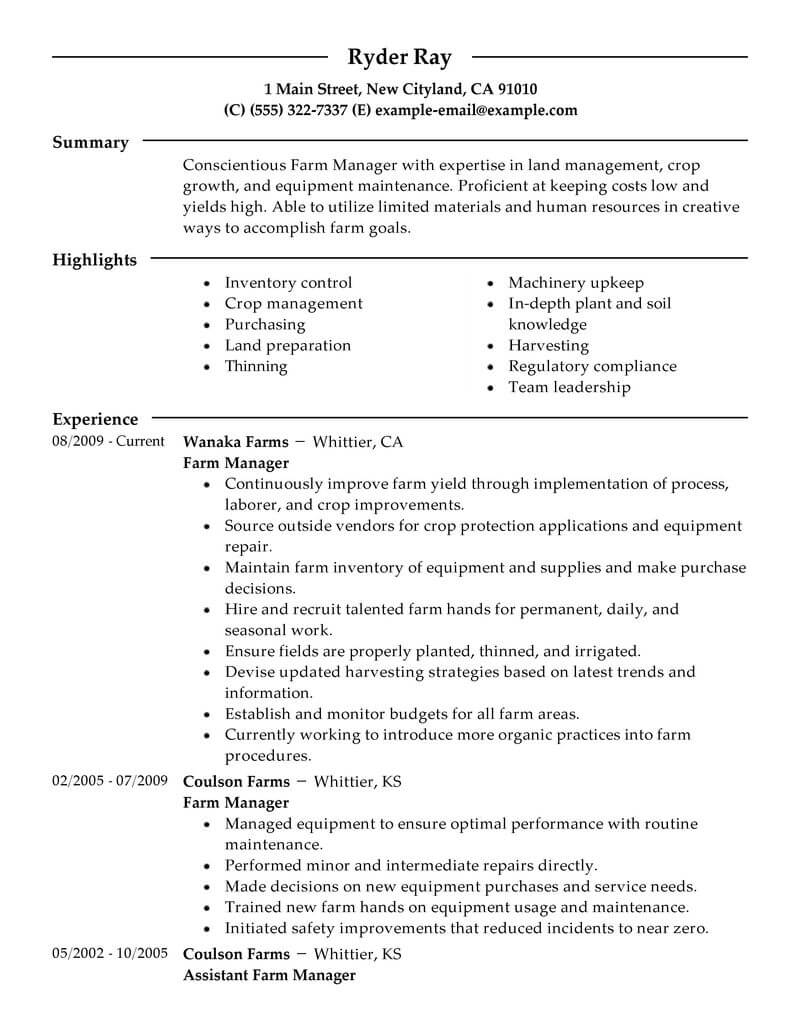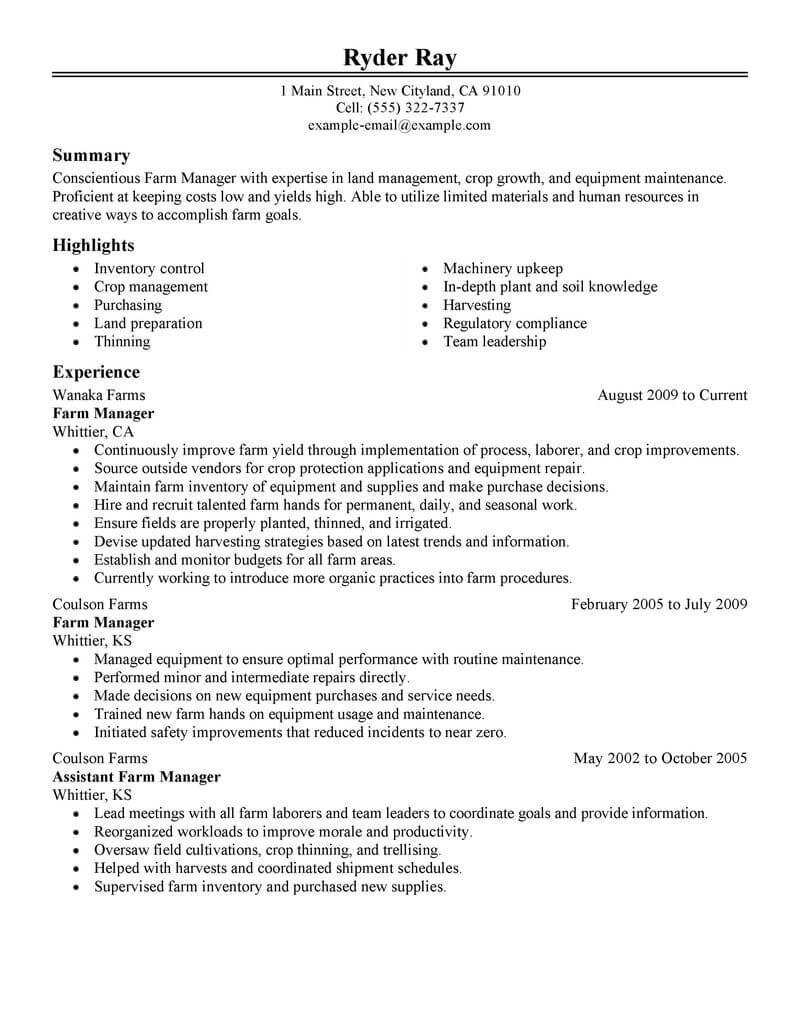Best Farmer Resume Example
Published: Wednesday 2nd of August 2017; Words Count: 1000
You won’t need a resume to operate a farm of your own, but if you’re seeking work with an established farm, vineyard, agricultural production facility, dairy operation, or similar venue, you’ll use your resume to demonstrate your value and land an interview with a farm operations manager. Begin your document with a summary that concisely explains your interest in the role and your background with this specialized type of work. Under your summary, provide your formal educational credentials including relevant extracurriculars, honors, and awards. Then list your core skill sets before launching into a clean, organized description of your past positions. Review this farmer resume example if you need guidance.
Farmer Advice
In today’s fast-paced, high-tech world, farmers continue to be as important as ever. Agriculture will always be an important part of the economy, and farmers provide us with the food and resources we need to survive. The resume examples below are designed for farm jobs such as ranch hands, equipment operators, and more. Use these resume examples as a guide, then choose a resume format and start building your own stand-out resume today.

Resume Tips for Farmer
Finding jobs as a farmer, just like finding jobs anywhere else in the United States, can take much time and effort. However, you can simplify your search by applying the following tips:
1. Create a game plan. It may be tempting to dive head-first into your job search, but take some time to plan out a strategy. Consider that your job search may take longer than expected.
2. Identify your transferable skills and how they relate to other fields and industries. You may choose to begin your search in a field you are already familiar with, but keep your options open. Knowing your own strengths allows you to promote yourself as a good candidate in other fields, as well.
3. Be methodical. Consider your job search to be your primary occupation for the time being, and devote a significant amount of time to it every day. Search and apply for jobs, schedule interviews, and send out thank-you notes. Follow up to find out the status of jobs you have already interviewed for.
4. Learn a new skill. A time of job transition is the perfect time to add a few new skills to your repertoire and give yourself an edge in the job market.
5. Go for certification. New skills are hard to prove if you have not used them yet. Getting certified in something new is a great way to show that you have learned it well and are ready to implement it.

Farmer Job Seeking Tips
Before you go out looking for open positions, be sure you have solid application materials. Searching for jobs as a farmer begins with crafting your resume. While there are several details that apply only to certain fields or levels of experience, there are some resume-writing rules that you should never break, no matter where you are in your career:
1. Focus on your accomplishments, not on your job duties. Your prospective employer does not want to read a description of your previous employment. He or she wants to know what you can do for the company in question, and what skills and talents you bring to the table.
2. Use measurable results to illustrate what you have done. If you increased sales in your department by 5 percent, include that on your resume. If you added 150 new accounts during your first year, include that. Anything that showcases your work in action is a good thing to add to your resume.
3. Emphasize your transferrable skills. Identifying your transferable skills is the first step. Using your resume to communicate those skills to a hiring manager is even more important.
4. Don’t emphasize jobs you held a long time ago. 15 years is a good guideline when deciding what experience is too old. You may want to list older entries under the heading “past experience. “
5. Omit skills you do not wish to use in your new position. If you are the greatest copy machine operator in the country, but you detest the sight of copy machines, do not mention copy machines on your resume.






